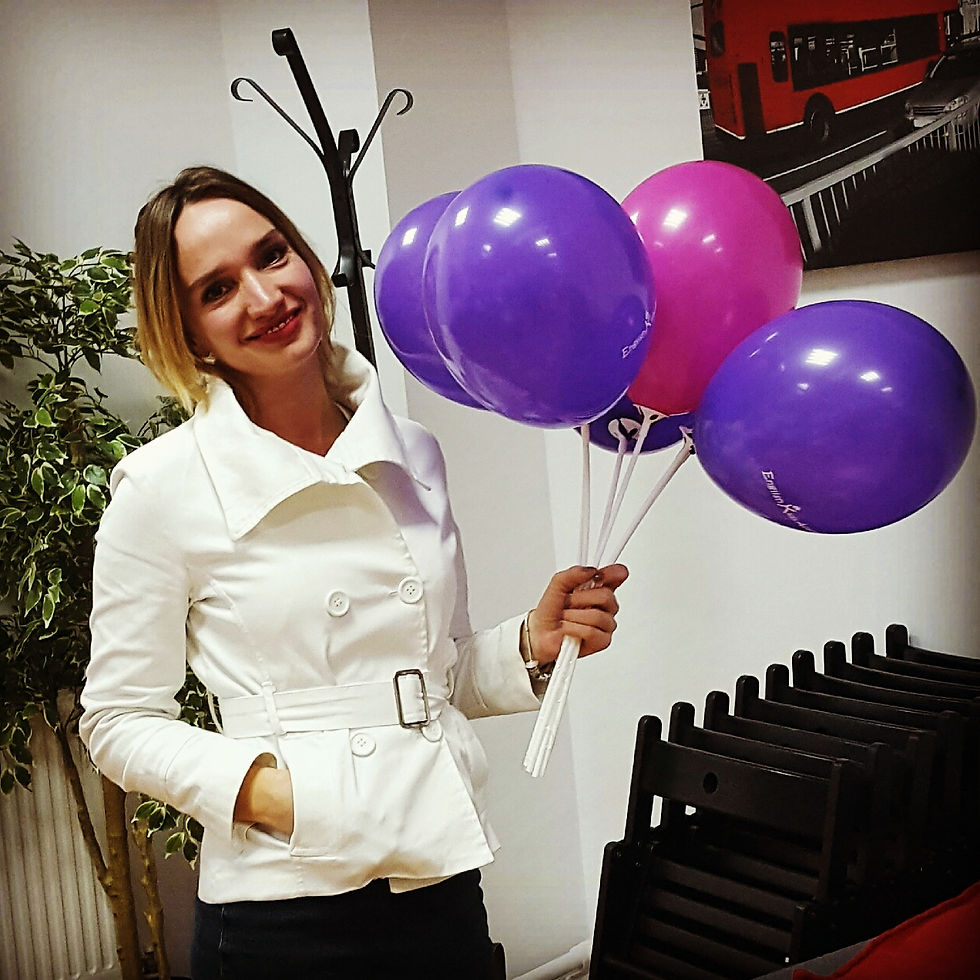
1. Can you sum up how you came to be a teacher of Romanian?
I became a teacher in 2000. I’m not sure that’s what I wanted to be long-term, as I thought it was a bit limiting: you see, I love travelling, changes, in short, being on the move. I used to work in the state education system for a few years, and didn’t start collaborating with International House Bucharest until 2006, only to find out that I can have it all, and that being a teacher does not limit me, but opens up new perspectives.
2. Portray in nuce the teacher who was your role model.
A special teacher was the French teacher I had in high school. More than a teacher, she was a complex person with passions, qualities and flaws that she wasn’t shy to show and which, more than anything else, inspire, motivate and compose a new world. A very pleasant memory is the trip to France that she organised, a cultural exchange between our high school and another from there. The three-day trip, the week spent there, accommodation with a French host family are memories which we, back then 16-year-old students, will never forget. And I think that’s what it means to be a different kind of teacher: to leave unforgettable memories.
3. Who’s your favourite student? Explain a little bit why.
It sounds cliché, but all my students are my favourite students, because you get that connection beyond the lesson taught, beyond the classroom. We go out and have classes in the open air, in bookshops, at the supermarket, at the marketplace... We learn Romanian by contact with reality, but also through the magic of a play in which you have the surprise to see your own teacher act. We learn new things from each other, we organise culture clubs, conversation clubs, outings, contests with prizes, all amusing, motivating but with one rule: we speak only Romanian!
4. What do you like teaching best in Romanian?
I think I like the first class very much because at the end you can already carry out a simple dialogue in Romanian, and the students are happy and amazed that for a whole hour they spoke only the foreign language that they study for the first time in their life. They still don’t know that they’ll soon find out it’s not that easy J and that Romanian, besides being very beautiful, is also quite difficult. But the end result is all the more satisfactory, isn’t it?
5. What’s your favourite word in Romanian. Why?
There are several words which become my favourite when I hear them repeated by students. Words which don’t have a specific meaning, but which you utter, as a native speaker, to link specific sentences, situations or moments of the lesson. For example, I sometimes say “Aşaaa...” (“Sooo...) or “Buuun” as a medial formula, let’s say. And I have the surprise to hear students say “Aşaa...” with a very Romanian air. Then that word becomes my favourite.
6. What’s your favourite saying/proverb in Romanian? What does it mean to you?
As my mother said, “what’s put off doesn’t get done”. If you like something, if you want to do something, don’t postpone! If you want to go on a trip, get your tickets now! If you want to sign up for a dance course, sign up now! If you want to learn a foreign language, come to us! J
7. At EKA, IH’s junior division, our slogan is “we teach more than English”. Transposing the concept, we can often say that at IH we have “more than teachers”. What makes you “more than a teacher”? What other projects/hobbies/interests make up your profile?
I’m “more than a teacher” because I take the lesson beyond the classroom. Through my passions, I take my student towards another world. I love theatre (I’ve been acting in two plays for two years), I love flying (tomorrow I’m going parachuting for the first time), I love movement (I do fitness and dancing), and all this makes up a profile which inspires, motivates and bonds.
8. Please phrase a “call to enrollment” on your IH Romanian course for a prospective student.
“Bună! Eu sunt Diana. Tu cine ești?”

